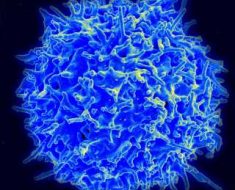In a breakthrough that could one day help individuals with cognitive impairment, researchers at Columbia University Irving Medical Center (CUIMC) identified a specific receptor related to the neurotransmitter serotonin that could be targeted with drugs to boost memory.
The researchers, who examined the role of serotonin in the hippocampus of mice, published their findings online today in the journal Neuron.
“First, we found that when serotonin is released from its endogenous pools within the hippocampus during learning, memory of the learned event is strengthened. We then reasoned that by identifying a dominant involvement for one type of serotonin receptor, we could test drug treatments on memory performance. Indeed, we found that systemic modulation of 5-HT4 receptor function with drugs enhanced memory formation,” said Catia M Teixeira, Ph.D., a Research Scientist at CUIMC, who co-led the study along with Zev B Rosen, Ph.D., a neuroscientist at Massachusetts Institute of Technology who was previously at Columbia University’s Kavli Institute for Brain Science.
The hippocampus region of the brain is essential for forming new memories about experienced events. The strength of neuronal communication—the method by which messages pass within the brain—in the CA1 region of the hippocampus provides a basis for memory. While the hippocampus receives strong serotonin input, if and how these serotonin pathways influence neural circuits and memory formation has largely been unknown.
The researchers used optogenetics—which uses light to stimulate or inhibit activity in neurons—to learn how a specific serotonin pathway that targets the CA1 region of the hippocampus influences neuronal communication, memory formation, and behavior in the mice. They found that when more serotonin was released, neuronal communication in CA1 strengthened and the animals’ spatial memory improved. When the pathway was blocked, spatial memory was impaired, demonstrating that serotonin release in CA1 is not only sufficient to boost memory formation, but also necessary for normal memory formation.
“Our data reveal the powerful modulatory influence of serotonin on hippocampal function and memory formation, and they support the rationale to target 5-HT4 receptors for pharmacotherapy of cognitive impairment,” said Dr. Ansorge, the senior author of the study.
Source: Read Full Article





